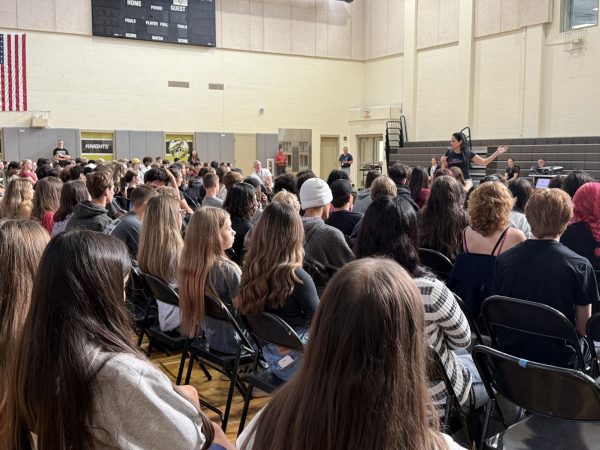U.S. backs out of nuclear deal with Iran
For almost fifty years, the U.S. has had rocky relations with Iran, but the conflict has risen when President Donald Trump took office and backed out of the nuclear deal.
“President Trump saw the Nuclear Deal as a bad agreement and backed out,” said government teacher Stacy Selle. “Since then America has placed heavy sanctions on Iran and escalated the issue.”
“The Nuclear Deal was an agreement with a lot of other countries,” added government teacher Erin Wise. “The other countries, like the United Kingdom, Russia, and China, are still in the deal with Iran. The agreement is still in place, but America is no longer a part of it. There are a lot more countries involved than just America and Iran.”
The fault of these conflicts does not rest solely upon President Trump. America’s tension with Iran has been around since the 1970’s under President Carter, and got its roots during the Cold War and the war on Communism.
“Iran is a theocratic republic, which is a democracy with a lot of religious power. They stopped being a full democracy in the 70’s with the Iranian Revolution of 1979,” Wise said. “The Iranian leader at the time was terrible and did not treat the people well, and America was a major proponent of him. That was during the time period where America was constantly backing any non-communist ruler.”
There was less conflict during the 80’s, but recently the conflict has escalated due to the heavy sanctions on Iranian trade. Instead of diplomatic tension, there have been strikes and acts of military aggression from both sides.
“Iran has had their own internal conflicts because they want more democracy, so the media over there has shut down. We don’t have that much insight as to what’s going on over there, plus the American media has been occupied with the upcoming elections, impeachment, and what’s happening in China,” Wise said.
It’s hard to judge how this will affect American citizens since the issues are still ongoing. Wise predicts a large impact on trade and travel, as well as higher prices at gas stations.
“We mostly just have to wait and see,” Selle said. “With all the confusion in Iran, we don’t really know what’s going to happen.”
According to Wise, it is important for Americans to remember that this is not an attack of American citizens from the Iranian people, and if the people believe that change should happen, they should contact their representatives.
“What American citizens need to realize is that this is a disagreement between two different governments, not people. We need to be respectful of other cultures and stay open to other ideologies,” Wise said.
The issues with Iran are still ongoing. Neither side has declared war, and Wise believes it will stay that way. If any American citizen wants to share their ideas for ending this decades-long issue, they should contact their representative.






Steven Avril • Feb 20, 2020 at 12:32 pm
Didn’t we back out of the deal like, two years ago? And what about Iranian power rise in the middle east? Didn’t the sanctions slow that down?